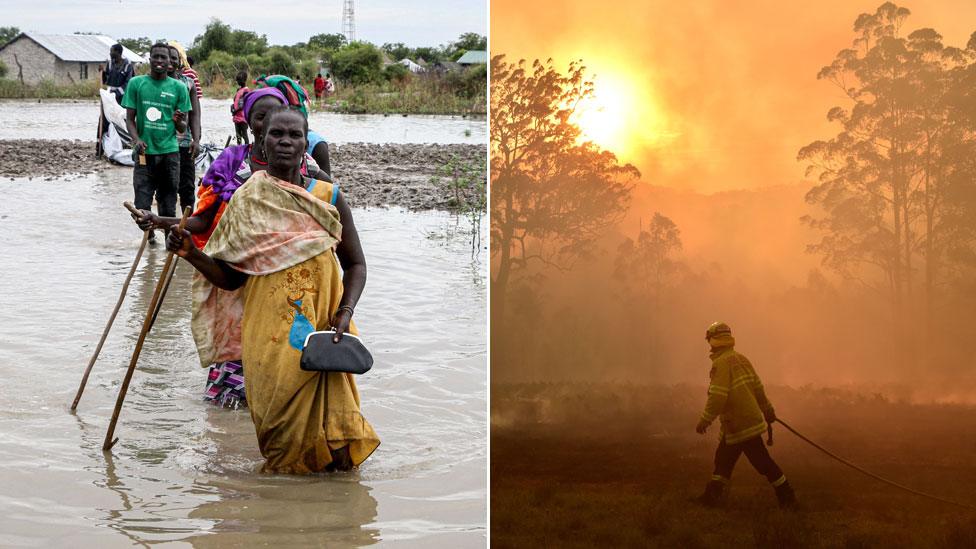Madrid COP25: What does Africa want from the UN climate summit?
- Published
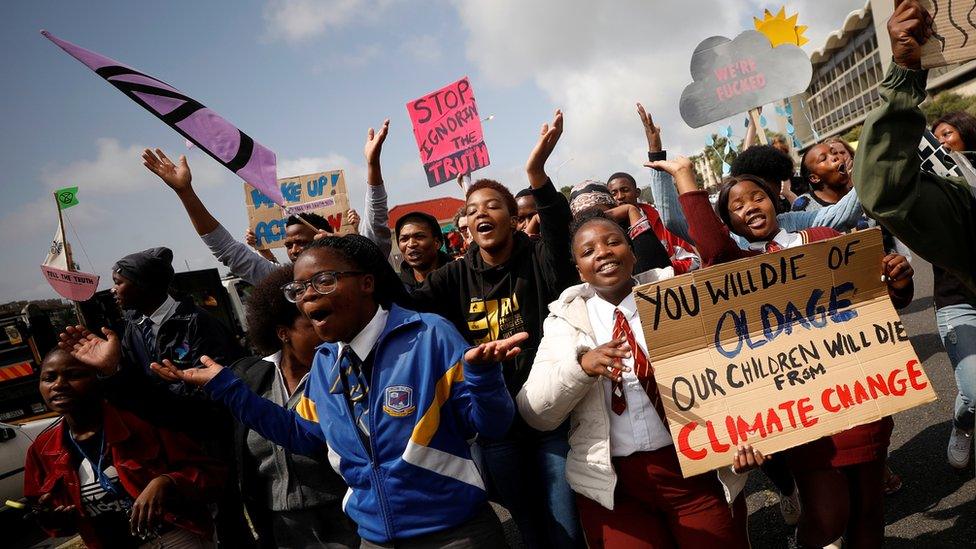
Young activists on the continent have been calling for bolder action to deal with climate change
Africa accounts for less than 4% of the global total of carbon emissions but the continent is the most vulnerable in terms of the impact of climate change, the UN says.
While most of the world works to significantly reduce their carbon footprint, in Africa the debate is different.
The focus is instead on finding ways to cope with the increasing numbers of climate-related disasters and also achieving economic development with minimum carbon emissions.
Both of these objectives need huge funds which African countries cannot afford.
Ahead of the ongoing UN climate meeting in Madrid (COP25) scientists had been warning that the world needs to reduce carbon emissions - five times more than what had been pledged - if we are to avoid dangerous climate change.
While that agenda is proving to be a tough nut to crack, different negotiating blocs at the UN meeting have their own priorities depending on their circumstances.
Africa's agenda
A UN study has estimated that sub-Saharan Africa would alone need climate adaptation finance of around $50bn (£37bn) annually by 2050.
"Africa needs to receive means of implementation," Tosi Mpanu Mpanu, a lead negotiator from the Africa Group, said at a COP25 press meeting in Madrid.
"We need to receive financial resources, technology transfer, and capacity building. And these are not outrageous asks."
His comments came amid concern among many poor African countries - 33 are listed among the 47 least developed countries - that they had not received the climate finance promised by rich countries and whatever was made available through international bodies was very difficult to access.
WATCH: Could Victoria Falls dry up?
The Organisation of Economic Cooperation and Development (OECD) - a body representing 36 of the world's most developed countries - however said last year that public climate finance from developed countries to developing countries had increased from $37.9bn in 2013 to $54.5bn in 2017.
Bad governance and corruption in some poor countries have been cited as a reason for ineffective use of climate funds.
'Africa already hit by climate'
Africa's need for adapting to extreme weather events, many of them linked to climate change impacts, is becoming increasingly urgent, experts say.
They point at recent examples of cyclones, floods and severe droughts.
"The health, livelihoods and food security of people in Africa have been affected by climate change," the Intergovernmental Panel on Climate Change, the UN body on climate science, said in its fifth assessment report, some five years ago.
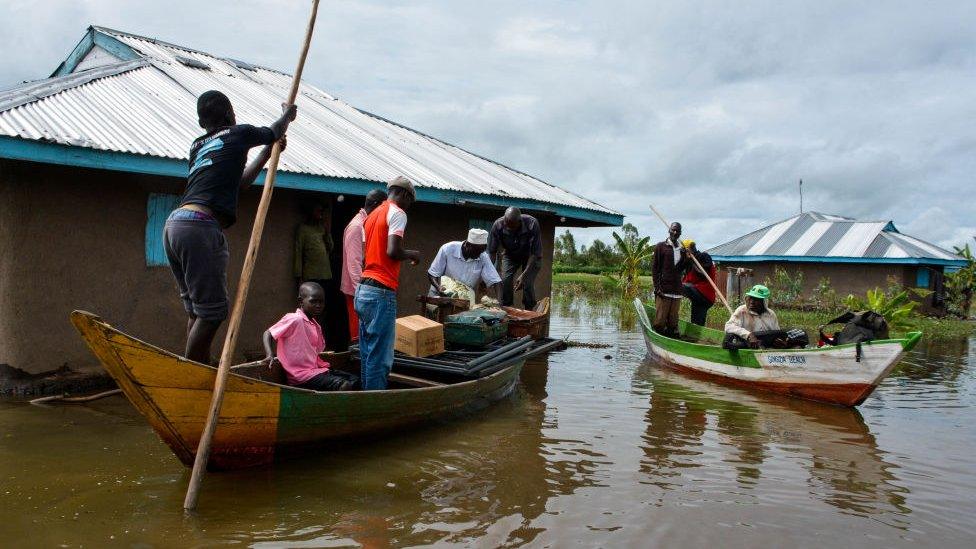
Major floods have hit the East African region forcing thousands of people from their homes
The report said production of wheat and maize in parts of Africa had already been impacted by climate change, as had the productivity of fisheries of the Great Lakes and Lake Kariba on the Zambia-Zimbabwe border and fruit-bearing trees in the Sahel.
More than half a decade since the report was published, climate experts say the effects have intensified and have become more frequent.
"No continent will be struck as severely by the impacts of climate change as Africa," the United Nations Environment Programme said in a report.
"Given its geographical position, the continent will be particularly vulnerable due to the considerably limited adaptive capacity, and exacerbated by widespread poverty," it said.

You may be interested in:

African negotiators at COP25 have been pressing for funds to adapt to the impact of climate change while demanding that major carbon emitters make significant cuts in their emissions to prevent dangerous warming.
"We from the Least Developed Countries bloc were very hopeful about adaptation financing in this meeting," said Sonam Wangdi, from Bhutan, who heads the LDC bloc that has 33 African countries as members.
"But all of our member countries, including those from Africa, are quite disappointed because we see nothing concrete happening," Mr Wangdi said.
Negotiators from the developing world have said climate adaptation and its financing were still not high enough on the main agenda.
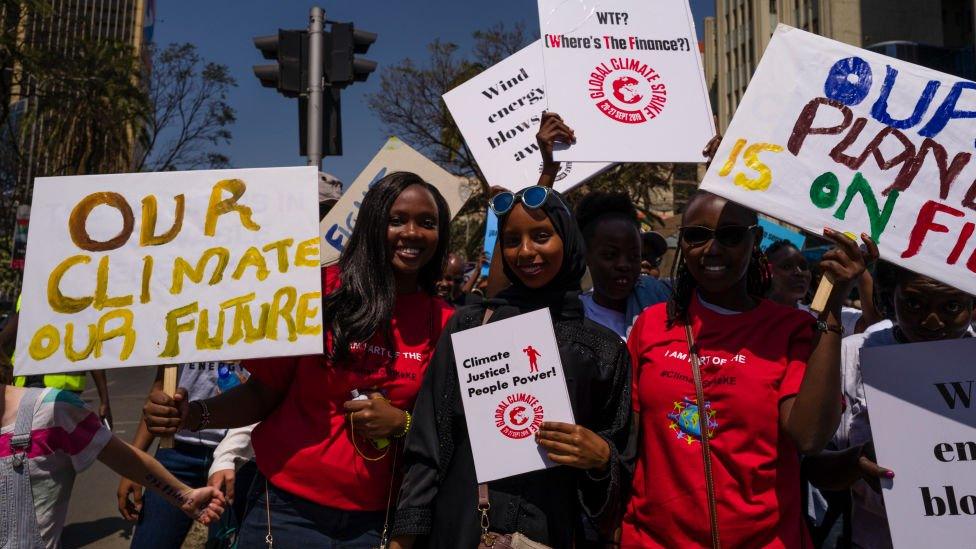
Activists in Africa have been pushing for funding to help mitigate the impact of climate change
An analysis by the OECD found that of the total climate finance mobilised by rich countries, less than 20% went for adaptation projects in 2017.
Another study by the London-based International Institute for Environment and Development estimated that less than 10% of $17bn international climate finance was committed for local level activities between 2013 and 2016.
The share for least developed countries would be lower still, with some climate finance experts putting the figure at around 5%.
"The main reason for Africa not getting adequate climate adaptation finance is because most international financing organisations don't see it bankable as there is no profit in the short-term," said Colin McQuistan, head of climate resilience with Practical Action, an NGO helping several African countries with climate adaptation.
"Africa is still largely a farming economy and it is mainly about small scale farmers... which means international climate financing agencies will have to deal with these farmers individually and that will mean huge administrative costs," added Mr McQuistan.
'Loss and Damage'
This is another contentious issue developed and developing countries have locked horns over, and Africa is very much involved.
The Warsaw International Mechanism, a special forum established six years ago to deal with the loss and damage idea, is being reviewed at COP25 and developing countries want it to be properly funded within the UN climate set-up.
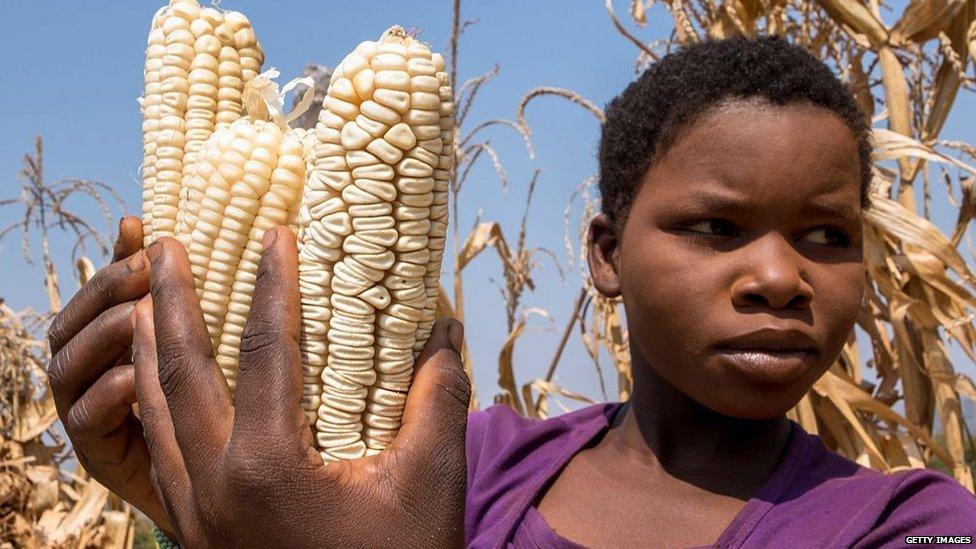
Prolonged drought is threatening food security in several African countries
Some experts consider "loss" to apply to the complete destruction of something such as human lives, habitats and species. "Damage" refers to something that can be repaired, such as roads or buildings.
However, developed countries have not yet recognised the concept of compensating impacted countries in the developing world.
African negotiators are actively involved in this negotiation but one of them said there wasn't any progress on this front either.
"Just like on adaptation finance, we thought we would be able to create a robust mechanism for loss and damage, but that has not happened so far," said the negotiator who wanted to remain anonymous.
"If we don't receive money, we will not only fail to adapt to climate impacts... we will also have no choice but to carry on with carbon-intensive economic development, like burning fossil fuels," said the African negotiator.
The meeting in Madrid is halfway through and last week largely focussed on technical sessions. With ministers joining this week, all eyes are now on them.
- Published9 December 2019
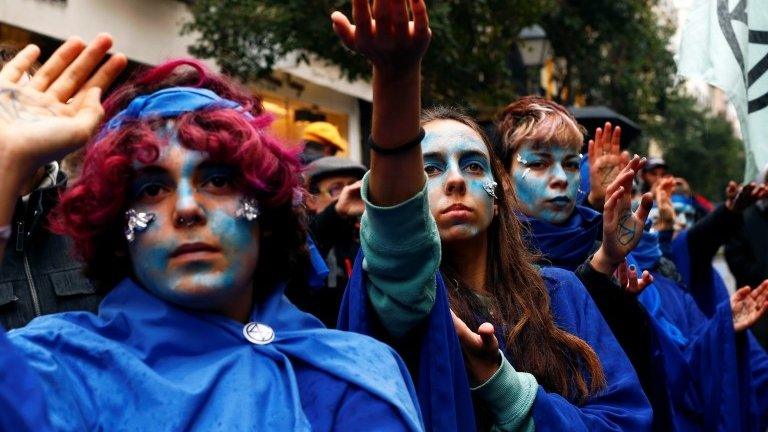
- Published8 December 2019
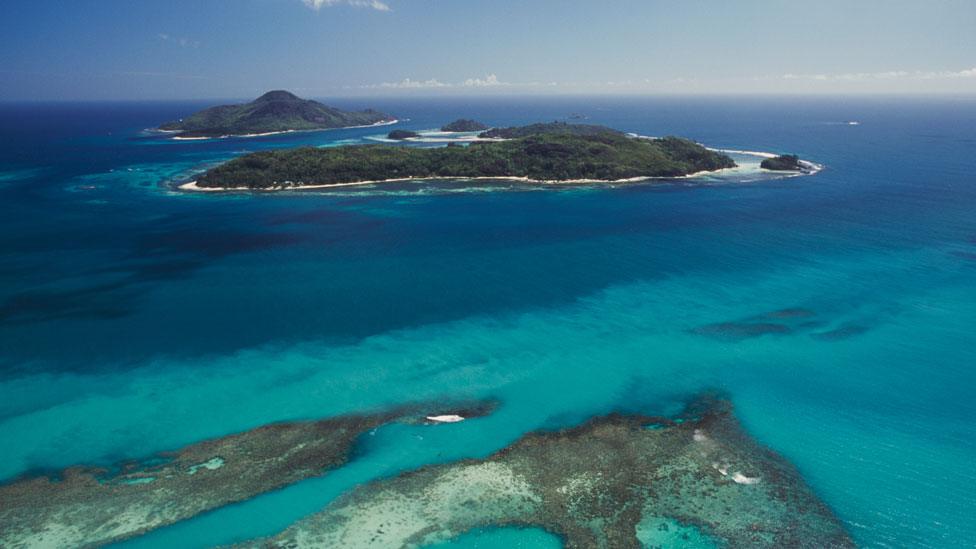
- Published11 December 2015
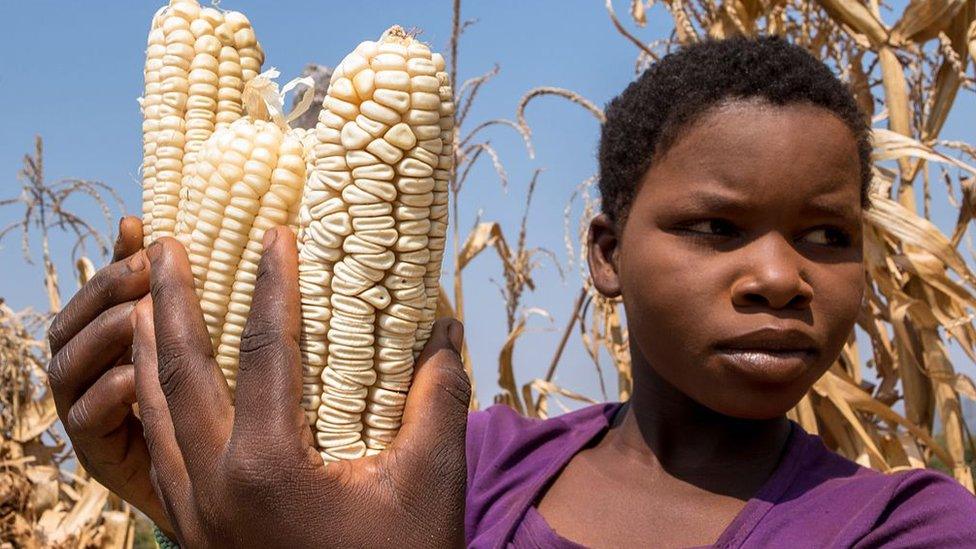
- Published7 December 2019
